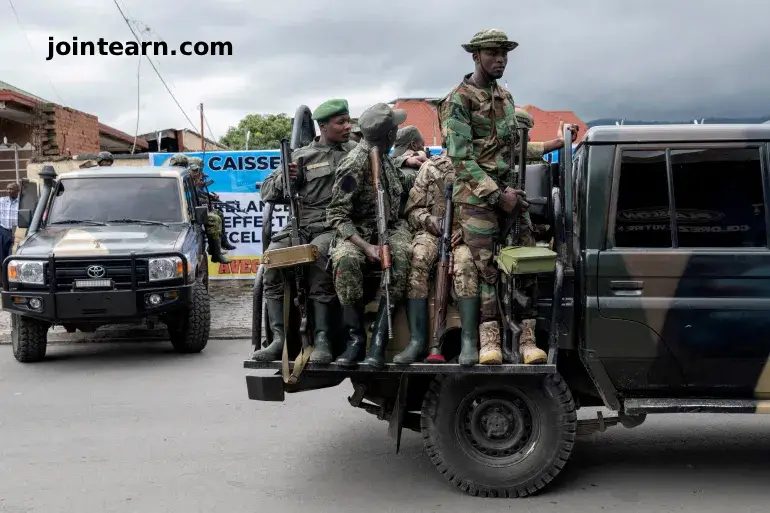
Introduction: Steps Toward Peace in the DRC
Representatives from the Democratic Republic of the Congo (DRC) and the Rwanda-backed M23 rebel group have signed a framework peace agreement in Doha, Qatar, aimed at ending years of conflict in the eastern regions of the country. Announced jointly by Qatar and the United States, the deal is intended as a roadmap to curb violence and address the dire humanitarian crisis in the DRC.
Although the framework is not expected to produce immediate changes on the ground, officials describe it as a crucial step toward a broader peace process, building on months of mediated negotiations and prior agreements.
The Road to Doha: Mediation and Prior Agreements
The DRC government and M23 have engaged in extensive talks over recent months. A ceasefire agreement signed in July laid the groundwork for further discussions, which have now culminated in the framework deal.
Qatar’s Minister of State for Foreign Affairs, Mohammed bin Abdulaziz Al-Khulaifi, emphasized that the agreement strengthens dialogue efforts to re-establish calm and stability in the DRC:
“The different sides achieved progress on several substantial topics to build on previous agreements discussed and signed over the past several months.”
The framework agreement contains eight implementation protocols, with two—on ceasefire monitoring and prisoner exchanges—already signed. The remaining protocols will define timelines, operational procedures, humanitarian aid access, and the return of refugees and internally displaced persons (IDPs).
Key Provisions and Goals
The framework deal outlines steps to address longstanding conflict drivers in the eastern DRC, including:
- Restoring state authority in rebel-held regions
- Economic and governance reforms
- Reintegration of armed groups into government structures
- Elimination of foreign armed groups
Both parties have also agreed to establish an independent committee to oversee implementation and provide recommendations on recompensation and national reconciliation, consistent with the DRC’s constitution.
International Support and Regional Involvement
The agreement benefited from mediation by Qatar, the United States, the African Union, and Togo. Massad Boulos, senior US envoy and advisor to President Donald Trump, hailed the framework deal as a “launching pad” for a comprehensive peace settlement:
“People were expecting some immediate results on the ground, but this is a process, this is not a light switch that you can turn on and off, and there are many angles to it.”
The DRC-M23 talks also drew lessons from international conflict resolution efforts, including the Israel-Hamas ceasefire negotiated jointly with Qatar.
Ongoing Violence Despite Agreement
While the framework peace deal has generated hope among the DRC population, fighting continues in eastern regions. Reporting from Goma, Al Jazeera noted that M23 forces were attacked by government troops on the morning following the agreement but managed to seize additional territory.
This underscores that while the peace framework sets a path for negotiation and reconciliation, tangible results on the ground will require sustained commitment, monitoring, and enforcement.
Humanitarian Context: Eastern DRC
Years of conflict between the DRC government and M23 rebels have devastated North Kivu, South Kivu, and surrounding provinces, leaving tens of thousands dead and millions displaced. The framework agreement aims to facilitate humanitarian access, protection of civilians, and the return of refugees and IDPs, critical steps in stabilizing the region and rebuilding communities.
Conclusion: Framework for a Broader Peace
The DRC-M23 framework deal represents a significant milestone in efforts to end violence in eastern Congo. While immediate changes on the ground are unlikely, the agreement provides a structured roadmap to implement ceasefire measures, humanitarian aid, and political reconciliation.
If fully implemented, the framework could pave the way for long-term stability in the DRC, improved relations with Rwanda, and a reduction in the region’s chronic humanitarian crisis.


Leave a Reply